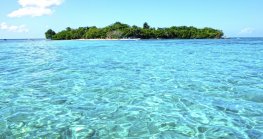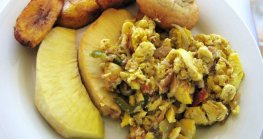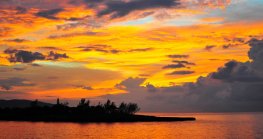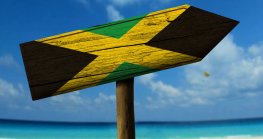The story of Samuel Sharpe

The air in Montego Bay carries a quiet reverence if you pause long enough to listen.
Beneath the rhythm of the city and the chatter of vendors, there is another sound, one that echoes through time.
It is the memory of Samuel Sharpe, the Baptist preacher whose courage helped light the path to freedom in Western Jamaica.
His story reminds us that faith and conviction can move mountains, even in the face of oppression.
A humble beginning
Samuel Sharpe was born around 1801 in Montego Bay, St. James, during a time when slavery shaped every corner of life.
He was enslaved on the Croydon Plantation, where he quickly earned respect for his intelligence and strong sense of morality.
Unlike many of his peers, Sharpe was literate.
He learned to read by studying the Bible, often teaching others to do the same.
Sharpe’s faith became his guiding light.
He joined the Burchell Baptist Church and rose to the position of lay preacher.
Through church gatherings and community meetings, Sharpe began to inspire those around him to imagine a different kind of Jamaica, one where their children could live free.
The road to rebellion
By the early 1830s, Sharpe had become a trusted leader among enslaved people across western Jamaica.
When rumors spread that freedom had already been granted by the British Crown but was being withheld by local planters, Sharpe saw an opportunity to act.
He organized a peaceful protest for December 1831.
His plan was simple but daring.
Workers across the estates would refuse to work until they were paid fair wages.
The movement quickly spread across parishes, including Trelawny, Hanover, and Westmoreland.
But when plantation owners responded with violence, the protest turned into an uprising that became known as the Christmas Rebellion or the Baptist War.
The revolt lasted just over a week but shook the entire island.
Over 500 enslaved people were killed, and many leaders were captured, including Sharpe himself.
Despite the brutality of the aftermath, the rebellion marked a turning point in the fight for freedom.
Faith until the end
Sharpe was tried and sentenced to death in 1832.
When asked if he had any final words, he reportedly said, “I would rather die upon yonder gallows than live in slavery.”
His strength of spirit left a deep impression on all who heard his words.
News of the rebellion reached England, sparking public outrage over the treatment of enslaved people in the colonies.
Within two years, in 1834, slavery was abolished throughout the British Empire.
Sharpe’s sacrifice had not been in vain.
Sharpe's enduring legacy of freedom
Today, Samuel Sharpe’s name is etched into Jamaica’s history as one of the island’s most courageous freedom fighters.
His statue stands proudly in Sam Sharpe Square in Montego Bay, where everyday life carries on around him.
The next time you visit Montego Bay, stop at Sam Sharpe Square and read the inscriptions on the monument.
Reflect on the courage it took for one man, armed only with his faith and voice, to help end centuries of oppression.
Image credit: Jamaica Experiences / AI artwork created with ChatGPT (OpenAI).
© 2019 Jamaica Experiences All Rights Reserved



















